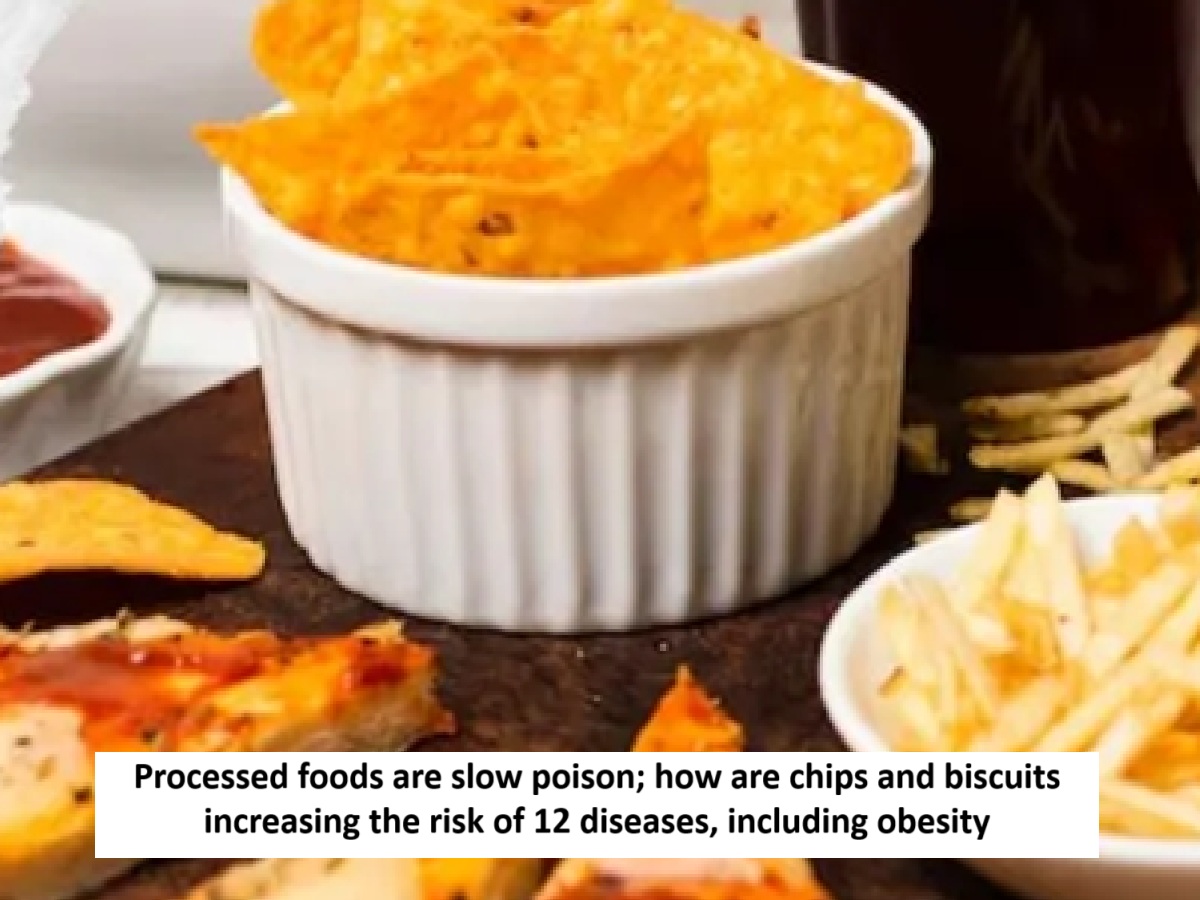
News Topical, Digital Desk : Modern lifestyles have presented a difficult challenge: obesity. This increases the risk of diseases like diabetes, heart disease, liver disease, and kidney disease. The Lancet has published a series of studies on this issue, which clearly show two things: first, the abundance of ultra-processed food has limited our healthy eating options, and second, the need for awareness about healthy eating has increased, from the individual to the policy level.
Despite knowing that such foods are harmful to health, ultra-processed foods like chips, biscuits, packaged drinks, and instant noodles are increasingly making their way into our kitchens. Ultra-processed foods are not just one factor, but a major contributor to the rise in obesity and diabetes in India. According to The Lancet, an urgent need for awareness about ultra-processed foods is needed to avoid the risk of non-communicable diseases.
Learn about ultra-processed foods.
These foods contain more than five ingredients not commonly found in the kitchen, such as preservatives, additives, dyes, sweeteners, and emulsifiers. Ultra-processed foods like biscuits, pastries, sauces, instant soups, noodles, ice cream, bread, and fizzy drinks are consumed daily in many homes. Several surveys show that a large number of people are now consuming excessive sugar, harmful fats, and salt instead of fiber and protein. Significantly, such packaged and high-calorie foods have reached small towns and villages.
Ultra-processed food is the cause of 12 types of diseases.
In this review study published in The Lancet, 43 global experts have detailed the adverse effects of processed food based on 104 studies. 12 potential problems have been identified, including conditions such as type 2 diabetes, cardiovascular kidney disease, depression, and premature death. Some scientists believe that it is almost impossible to eliminate ultra-processed food due to today's lifestyle. Meanwhile, critics of the study believe that it increases the risk of chronic diseases, but it cannot be said with certainty that all types of ultra-processed food increase the risk.
- According to the ICMR India Diabetes (2023) study, 28.6 percent of Indians are suffering from obesity.
- Currently, 11.4 percent of Indians have diabetes and 15.3 percent have pre-diabetes.
- 40 percent of Indians have abdominal obesity.
- Obesity was identified in 3.4 percent of children in NHFS-5, while in NHFS-4 this figure was 2.1 percent.
Increasing imbalance between calories and nutrition
Ultra-processed foods are rich in sugar, fat, and salt, enhancing their palatability and attracting people to consume them. The high content of refined carbohydrates and sugars causes rapid increases in blood sugar, which impacts the body's insulin response. This impaired metabolism increases the risk of type 2 diabetes.
Why traditional Indian food is important
The biggest problem is that ultra-processed foods are rapidly replacing traditional Indian food, including grains, pulses, and vegetables. Properly prepared, traditional Indian food is rich in fiber and micronutrients. This also reduces the risk of metabolic problems.
--Advertisement--

 Share
Share



